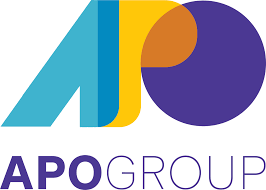Beyond Borders: Webb Fontaine’s Port Community System (PCS) Redefining Global Trade Logistics
Content provided by APO Group. CNBC Africa provides content from APO Group as a service to its readers and does not edit the articles it publishes. CNBC Africa is not responsible for the content provided by APO Group.

In the dynamic world of global trade, Webb Fontaine’s Port Community System (PCS) (https://www.WebbFontaine.com) emerges as a transformative force, heralding a new era in the automation of port logistics and trade facilitation. At its core, the PCS offers a compelling solution to the complex challenges that nations encounter in their efforts to streamline trade processes.
By addressing long-standing impediments like port congestions and delays in the release of goods, Webb Ports stands out through the promotion of efficient communication among stakeholders. It goes beyond merely streamlining operations; it ensures secured payments and expedites the release of goods, paving the way for a transformative shift in the dynamics of global trade.
A standout feature is Webb Ports’ adaptability to diverse countries and ports, coupled with a turnkey approach that ensures rapid implementation. Within a span of less than six months, a complete port solution becomes a reality for all types of freight and transport modes, making it an instrumental tool in simplifying the complexities of global supply chain projects.
Webb Ports takes centre stage in revolutionising traditional supply chain management by automating processes and enhancing information transmission. The system not only provides unparalleled visibility into port operations but also serves as a linchpin for simplifying the intricate web of supply chain projects, ensuring a fluid and efficient trade ecosystem.
This electronic collaborative hub seamlessly connects diverse stakeholders within ports and airports. Carriers, Customs authorities, terminal operators, freight forwarders, declarants, regulatory bodies, and banks all converge on this platform, facilitating a streamlined exchange of instructions, movements, documents, and authorisations associated with import and export consignments.
Through effortless integration with electronic payment platforms, such as Paylican™, Webb Ports empowers carriers, terminal operators, and relevant authorities to efficiently manage fees and taxes via a unified system. Invoices for mandatory payments are generated, offering a comprehensive solution that encompasses Customs Webb, Asycuda, and a CMS connectivity toolkit.
Webb Ports has already been implemented in multiple countries, including Benin, where Webb Fontaine has partnered with the Ministry of Finance and Benin Control to modernise and streamline the nation’s trade landscape. Benin serves as a crucial transit route for West Africa, connecting over 100 million people in the landlocked countries of Niger, Mali, Burkina Faso, Chad, and the northern regions of Nigeria.
The success story of Benin stands as a compelling testament to the tangible impact of Webb Ports. By implementing this innovative system, Benin secured the third position in Africa and the first in West Africa, according to the World Bank’s 2023 report on logistics performance. This success narrative highlights the pivotal role of PCS in trade facilitation, simplifying the implementation of complex supply chain projects and propelling nations to the forefront of efficient logistics management.
In essence, Webb Ports serves as a catalyst for a new era in ports logistics automation and trade facilitation. As governments navigate the complexities of their trade infrastructure, the PCS emerges as a compelling answer—a journey towards simplification, efficiency, and economic growth in the global trade landscape.
Distributed by APO Group on behalf of Webb Fontaine.


 | Thu, 22 Feb 2024 07:00:13 GMT
| Thu, 22 Feb 2024 07:00:13 GMT